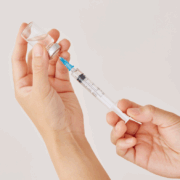From Farm to Feast: National Consumers League Says You Should be Concerned About Food Safety This Holiday Season
Avoid foodborne illness this Thanksgiving with simple steps for safe thawing, cooking, and leftovers.
Media Contact: Lisa McDonald, Vice President of Communications, 202-207-2829
Washington, DC – As Thanksgiving and Christmas quickly approach, the National Consumers League (NCL) reminds consumers that foodborne illnesses are on the rise. Still, some simple food safety practices will keep holiday meals safe and enjoyable for family and friends.
“Food safety during the holidays should be a priority,” said NCL Director of Food and Nutrition Policy, Nancy Glick. “Foodborne illnesses affect about 48 million Americans annually, but spike over the holiday season when larger gatherings and leaving food out for extended periods create more opportunities for bacteria to grow and spread.”
Knowing how to prevent foodborne illness requires understanding what this health problem is, who is most at risk, and the types of foods that are most likely to become contaminated and harbor the bacteria that cause most cases of foodborne illness during the holidays.
However, within these food categories, the USDA has identified a number of holiday foods that are known to carry food safety risks because they are more vulnerable to contamination. These foods include stuffing made with raw poultry, stuffing, or casseroles, undercooked poultry (like turkey), raw eggs in dishes such as eggnog, and deli meats, especially if they are store-prepared deli salads. Other holiday foods that require attention are leafy greens, ready-to-cook dough and batter, raw or undercooked shellfish and especially oysters, and cooked rice left at room temperature, which can become breeding grounds for bacteria.
Towards this end, information from the Centers for Disease Control and Prevention (CDC) is invaluable. Starting with a definition, CDC describes foodborne illnesses, also known as “food poisoning,” as diseases transmitted to people by eating or drinking something contaminated with bacteria, viruses, parasites, or chemicals, such as toxins or metals. While a foodborne illness can be severe, leading to hospitalization, long-term health problems, and even death, most cases are mild and involve symptoms like upset stomach, diarrhea, and vomiting that resolve in a few days.
The problem, however, is that certain groups of people are more susceptible to foodborne illness than others – meaning they are more likely to get sick from contaminated food. If they do get sick, the effects are often more serious. Thus, it is essential to be vigilant in following safe food-handling practices when shopping for, preparing, and storing foods that will be served to children under age 5, older adults, pregnant women, and people being treated for diabetes, cancer, autoimmune diseases, and HIV.
The US Department of Agriculture (USDA) cautions consumers to be aware of holiday foods that can harbor bacteria like Salmonella, E. coli, and Listeria if not cooked or stored correctly. Using data reported from studying foodborne outbreak-related illnesses occurring between 1998 and 2008, USDA researchers determined that plant-based foods, including fruits, nuts, and vegetables, accounted for the most cases of foodborne illness (51 percent), followed by meat and poultry (42 percent) and dairy products (14 percent).
Glick continues, “Knowing the risks associated with foodborne illness and the common holiday foods that may cause people to get sick are the keys to having a safe and healthy holiday. Foodborne illness is preventable, but this requires being serious about food safety practices, from handwashing, safe thawing methods, preventing cross-contamination, and keeping foods at safe temperatures.”
It’s not too early to brush up on safe food preparation and storage practices. As you gather with loved ones to celebrate the holidays, keep these practices in mind to help prevent foodborne illness.
NCL’s Top Food Safety Tips for a Healthy Holiday
- Thaw safely: Never Thaw a turkey on the counter. Defrost in the refrigerator (24 hours per 4–5 pounds) or in cold water, changing the water every 30 minutes.
- Cook thoroughly: Use a food thermometer — turkey breast should reach 165°F, thighs 175°F. Don’t rely on color alone.
- Avoid cross-contamination: Keep raw poultry separate from other foods. Wash your hands, utensils, and cutting boards often.
- Handle leftovers with care: Refrigerate within two hours, store in shallow containers, and reheat to 165°F. Discard after 3–4 days.
###
About the National Consumers League (NCL)
The National Consumers League, founded in 1899, is America’s pioneer consumer organization. Our mission is to protect and promote social and economic justice for consumers and workers in the United States and abroad. For more information, visit www.nclnet.org.

























